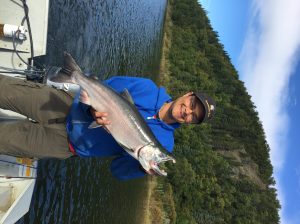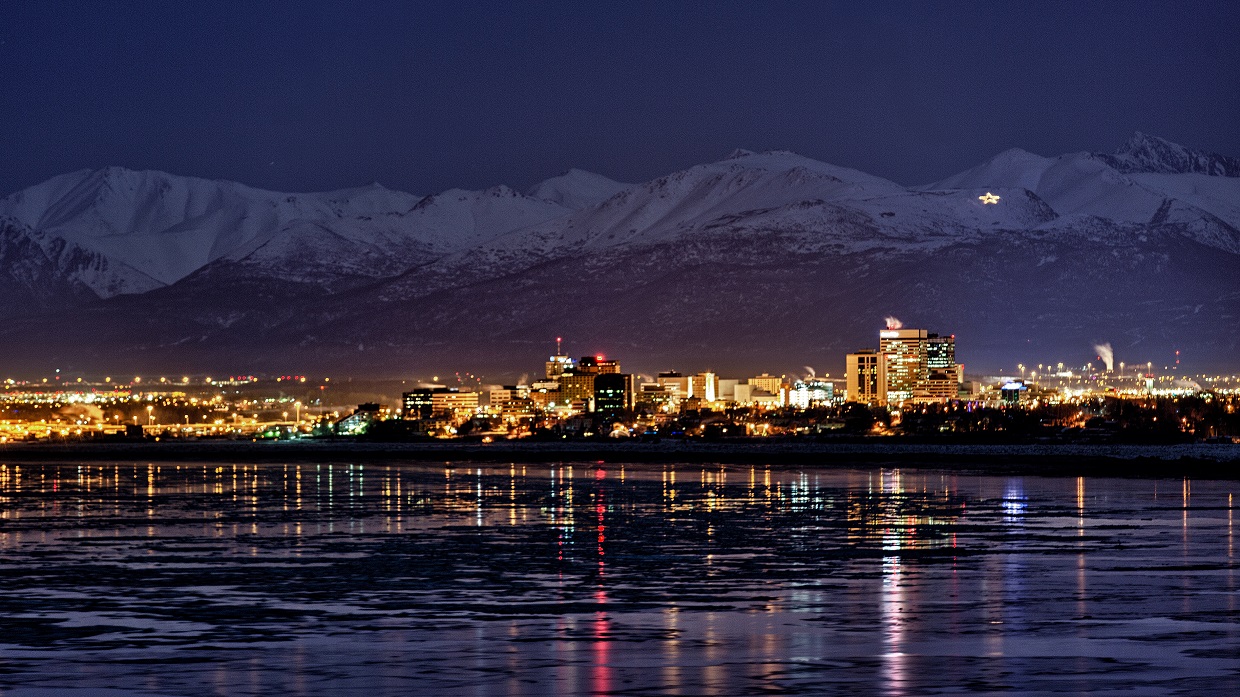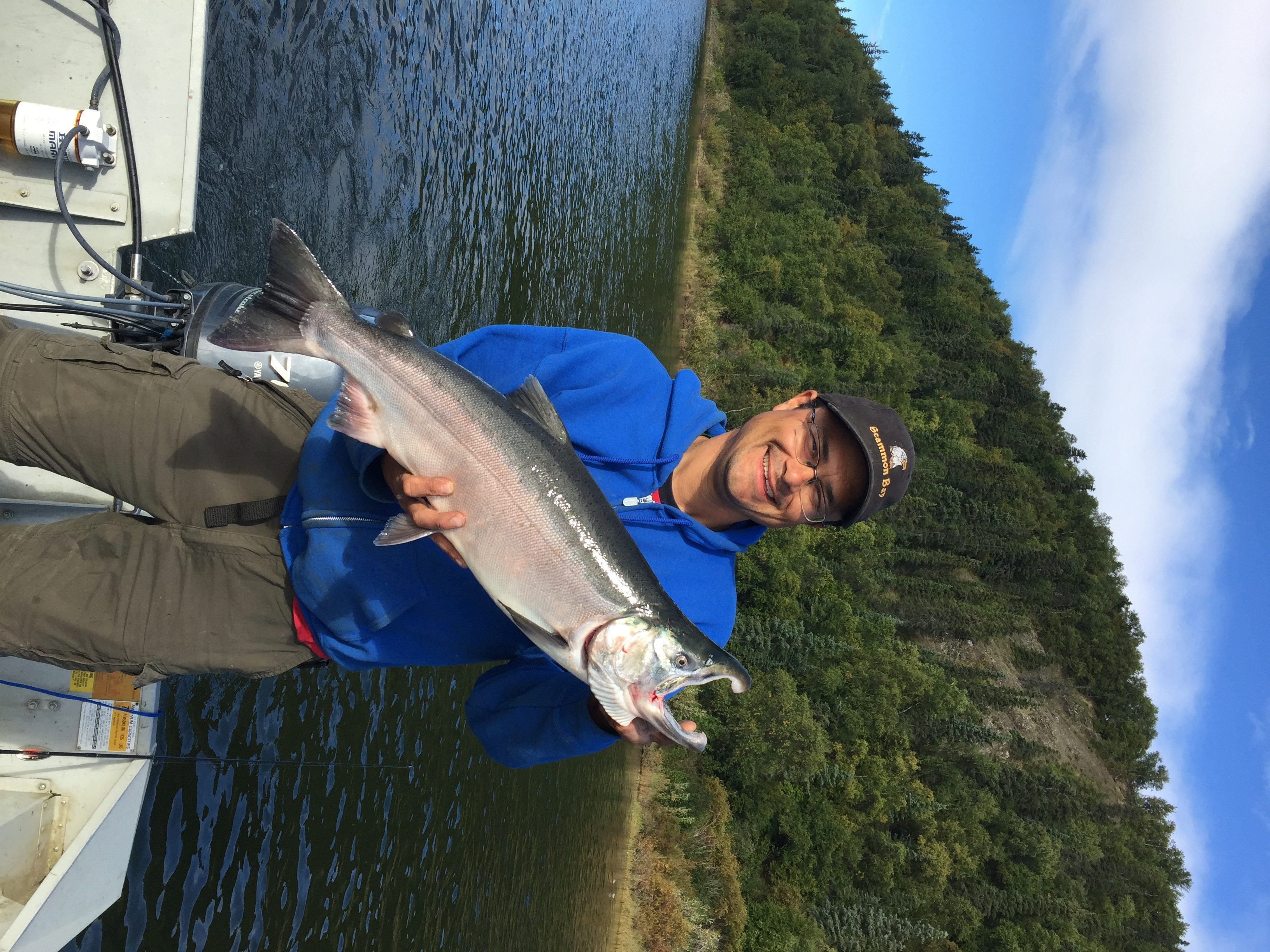Curtis Ivanoff has the distinction of serving as a church leader in the American city with the most diverse neighborhood. And it’s probably not the city you’re thinking of.
Anchorage, Alaska is home to the Mountain View neighborhood, the most diverse place in the United States. This community holds sizable populations of white, African-American, and Alaskan Native people, along with immigrants from all over the world. But this one neighborhood is no isolated fluke. In fact, the country's three most diverse census tracts are located in Anchorage, home to a large military presence and to people from cultures not found in large numbers elsewhere in the U.S. The state itself is more diverse than many people think, covering more than 600,000 square miles and a dramatic variety of cultural identities both on the road system and off.
Curtis, who has both Russian and Inupiaq (Eskimo) heritage, grew up in Unalakleet, Alaska, and identifies as Alaskan Native. He is the first Alaskan Native leader to serve as superintendent of the Alaska Conference of the Evangelical Covenant Church. He has words of wisdom and experience for other Christians seeking to bring reconciliation and unity to their communities.
Church leadership is part of your heritage, isn’t it?

I was raised in Unalakleet, where the first missionary from the Covenant Church arrived in 1887. My great-grandfather, Stephan Ivanoff, was an early convert and served as an interpreter because he knew Russian as well as the Eskimo language, Inupiaq. The missionary was from Sweden, and he knew Swedish and Russian. So my great-grandfather was part of the missionary’s work. He served in a leadership role and was a person of influence. That is always inspiring to me.
He went to North Park University in 1902. It was quite a thing to go from Unalakleet to Chicago in 1902! It can be an adventure enough today. I went to North Park in 2007 for one school year, and it was not lost on me that my great-grandfather had been there for the sake of growing in the knowledge of God's Word and being equipped to serve. I would often think about how I was walking in the footsteps of my great grandfather. That's been an encouragement to me as I've been in vocational ministry.
One time after I was done preaching in Unalakleet, an elder came up to me and said, “Curtis, you sounded just like your great-grandfather.” That was a real encouragement to me.
Talk about the historical role of the church in Alaskan villages.
Throughout Alaska there's such a diversity of cultures, the experiences with the church are going to vary from region to region. When I talk of Alaskan native peoples, my experience and familiarity is mostly with Western Alaska. I have done a lot of reading and study of other places, but my prime experience is with Western Alaska, Inupiaq and Yupik people.
The historical traumas run deep, and in the last couple of decades the church has been a source of hope.
With the arrival of Protestant missionaries in the 1880s, there was a very intentional work to spread the gospel. The reality was that the work was also meant to “civilize” Alaskan Native peoples. So there's a whole host of complex social realities, including everything from epidemics to assimilation strategies and other outside influences besides the church: fur seekers, gold seekers, and then oil. And even before gold, whalers came from international places and really made an impact on the marine ecosystem. The church often followed the outside contact. The historical traumas run deep, and in the last couple of decades the church, and people of faith in Christ, have been a source of hope as people work through the pains of historical trauma. The power of the cross and the power of forgiveness is a source of hope and of new life and of peace. So it's not all bad. There's so much beauty in the culture.
What does your role as superintendent look like?
We have 19 churches and four other ministries here in Alaska. Twelve of the churches are in bush Alaska, accessible only by airplane—or in the wintertime you can use a snowmobile to get there if we have enough snow. Seven of them are on the road system. So it's a very interesting mix of communities and churches. There’s a lot of diversity. We cover an area of 280,000 square miles.
I’m here to support the churches and leaders of the churches, to help them in searching for pastors and developing leaders. What I find interesting is the work of finding our unity in Christ, having a diverse cultural mosaic. Part of my work is to be a bridge builder and to help strengthen ties and the unity we have in Christ; at the same time, to affirm the cultures of the people. I believe every culture reflects God's glory in some unique way.
Part of our challenge in Alaska is that our cultures have changed to where our languages are dying and there’s a sense of wanting to preserve culture. I think that's a noble pursuit and a noble effort; however, the gospel is not about cultural preservation, but it's about having an identity in Christ. At the same time, every Christian witness, every Christian worship experience, is through some cultural lens. So I do find it important that we recognize that each culture can reflect God's glory in some unique way. There's dignity in every people group. That's been part of the pain. In the assimilation process, the indigenous peoples of this whole country were not treated with dignity. There's residue of colonialization still today, and being an Alaskan Native person myself, it's on my heart to affirm our culture and to affirm ways we can express our worship through our culture.
And then you have people who are on the road system, who are somewhat transient.
Yes, that’s exactly the word that came to my mind. They are such a transient population. You have people coming in and out of Alaska whose experience of Alaska is adventurous and who see Alaska as new. So you have this really interesting mix of people who may be in Alaska for five years and people who have been here for millennia. My ancestors are among them. It does make for an interesting cross-cultural dynamic.
In broad strokes, what is happening in church ministry in Alaska?
I am grateful for the work we do among our youth and young adults. Our Covenant Bible Camp has nearly 400 campers in the summer, from grades 3 through 12. Our youth ministries have grown, and we're seeing the fruit of that. It's always been on our hearts to see leaders raised up from within our churches and in our communities, believing that the Holy Spirit is on people's lives no matter where you're from. The same Holy Spirit has been given to each one of us. Young adults who have been to Bible camp, and part of our youth ministries, are serving in positions of leadership. There's one young lady serving on the executive board for the denomination. Young adults are stepping into roles of leadership, and that's an exciting thing.
Something that is very fresh on people's hearts, given the climate of our culture and the struggles we have with unity and division, is reconciliation. I see this especially among younger people, and I try to imagine the fruit in five, ten, fifteen years, when we have a church that is reflecting peoples who are reconciled to God and reconciled to one another as a witness of the gospel in Alaska.
I cringe when people say, “I don't even see people's color anymore.” Our color does matter.
With the way our lives have changed in Alaska, particularly among Native Alaskan peoples, the way young people are growing up today, they straddle two worlds. It's a challenging proposition. That captures the hard part of our youth and young adult ministry: helping people become grounded in their identity in Christ yet reflecting and honoring their cultural tradition and heritage in a way that will glorify God. That's challenging work, when you have a mixture of people like we do. But I'm seeing that more and more, and it’s something I give thanks to God for.
In your experience, what is required for people to be reconciled across cultures and backgrounds?
We have to be able to not just step out of our comfort zones, but to enter into other people's stories. It goes both ways, whatever people group. We have to be able to heed the teaching of Jesus from the story of the Good Samaritan, to allow God to break open those boxes that we draw and be intentional about entering other people's stories and understanding what brings people joy.
I was raised in a village; I went to the University of Oklahoma; I've been to Kazakhstan; I went to school in Chicago; I've lived in a village north of the Arctic Circle; I've lived in Anchorage; I'm married to someone from Dallas, Texas. I've had a lot of life experiences. And I cringe when people say, “I don't even see people's color anymore” or “That doesn't matter.” Our color does matter. And our cultures do matter because each of them can be a gift to the body of Christ. Hence the need to enter other people's stories, to listen and to learn.
First Corinthians 12 tells us when one part of the body hurts, every part hurts. We can't move forward until we are moving forward together. I think that's why it's important to have our eyes open and our hearts broken and open toward people who are oppressed or marginalized. That's Jesus’ heart. Lamenting history, lamenting brokenness, is a significant part of the ministry of reconciliation we have been given. In Alaska we have a lot of reconciliation work to do. And that goes across our nation.
What have you learned, and are you teaching others, about training church leaders among people who historically have been hurt by the church?
When a hunter catches their first catch, whether it's a caribou, a moose, a seal, or a whale, they are to give it all away. That captures the generosity you'll find in our rural communities.
The first word that comes to my mind is identity. The gospel of Jesus says our identity formation is found in Christ. What I'm learning is that we want to affirm the God-given dignity of people, whatever their culture, to say that every person bears God's image. That's a critical aspect of the growth of leaders, that we serve from an identity that's found in Christ. For a leader, whether they are Yupik or Inupiaq or Swedish or American or whatever, there's dignity in that and a gift to be given. What I want to be faithful to do is to offer the gift of myself to the work of God's kingdom and to encourage our young leaders as they grow in identity in Christ to be affirmed to share the gift that is the person they are.
What can the rest of the church learn from Alaskan churches and Alaskan Native Christian people?
One of our cultural traditions is that when a hunter catches their first catch, whether it's a caribou, a moose, a seal, or a whale, they are to give it all away. That captures something you'll find in our rural communities. There's a great deal of generosity. I have come to appreciate that about our culture and our people, and I think it's reflected in the church.
I've also come to appreciate the hospitality you find in our rural communities. People are willing to open their homes, open their hearts. I was at a church conference in Buckland, Alaska, and when I got to the village I had planned no place to stay. I wasn't worried because I knew it would work out. People take care of other people. I went to the parsonage and lots of people were there having lunch. This one lady, her grandmother was taken in by my great-grandfather and great-grandmother years ago. And somehow in the course of the conversation she realized I didn't have a place to stay yet. She looked at me and, with a big smile on her face, said, “Because your great-grandfather took in my grandma, you can stay here.” The thing was, that wasn’t even her house! She was visiting too. That totally captures the spirit of welcome and hospitality.
My uncle had a saying. So often I would go into his house and these words would come out of his mouth: “You're just in time!” Can you imagine what it would be like if, when people walked into our churches, they were greeted with “You’re just in time” or “You can stay here.” How transformative that would be. I won't say our churches have it down perfectly, but it's something that's reflected in the heart of our people, and it plays itself out in the church. Our native communities aren't just doom and gloom. We are hospitable people. You can show up, and I guarantee you're not going to go hungry.
Amy Simpson is a life and leadership coach, a frequent speaker, and the award-winning author of Anxious: Choosing Faith in a World of Worry and Troubled Minds: Mental Illness and the Church’s Mission (both InterVarsity Press). You can find her at AmySimpsonOnline.com and on Twitter @aresimpson.










